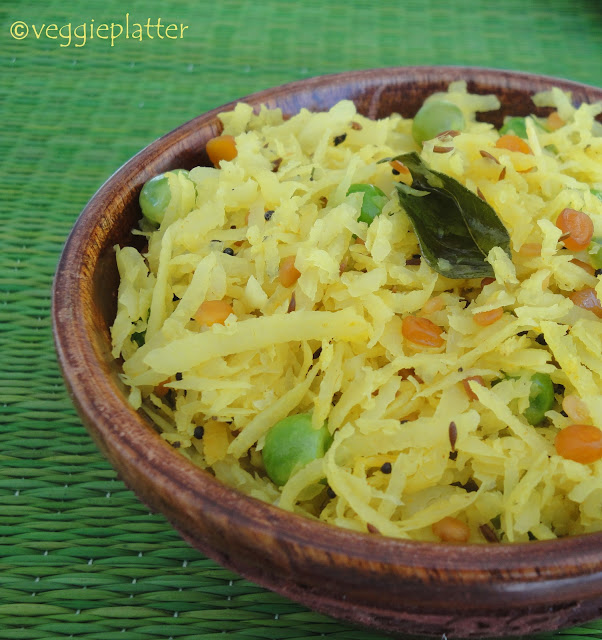I had a few kohlrabi bulbs from our summer harvest that was tucked away in the refrigerator for the past four months. Somehow surprisingly, they stayed fresh with out rotting. I combined them with a few carrots to prepare this subzi yesterday. These vegetables cook fast and flavorwise complement each other well in this simple yet tasty subzi. Serve it with either rotis or rice.
Ingredients for 3 servings:
1 kohlrabi bulb + 2 -3 carrots (About 2 cups peeled and grated kohlrabi & carrot together)
1/4 cup fresh shredded coconut (thaw if using frozen)
Salt to taste
For tadka: 1 -2 Tbsp oil, 1 tsp each - mustard seeds, chana dal, urad dal & cumin seeds, 6 red chillies, few curry leaves
The cooking part:
Heat oil in a kadai/pan. Add the mustard seeds, chana dal, urad dal and cumin seeds. When the dals start to turn reddish, add the chillies and the curry leaves. Sauté them for a few seconds and then add the carrot - kohlrabi gratings and salt. Mix well and cook covered on low flame, till the vegetables turn tender. Then add the coconut, again mix and cook for a few minutes more. Turn off the stove.
Post a Comment












